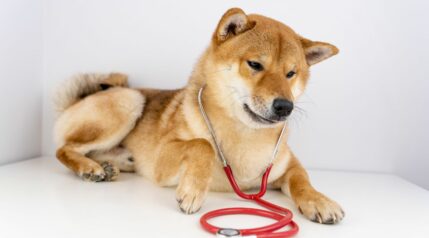Cabbage belongs to the brassica family and comes in a few varieties and colors including red, white, and green. It’s a versatile and leafy vegetable that is packed full of nutrients, making it one of the healthiest vegetables out there.
Cabbage is a common vegetable found in most people’s fridges, and we humans like to add it to all sorts of dishes. It’s super versatile and can be eaten cooked or raw.
But you might be wondering whether you can share this tasty veg with your four-legged friend. Find out the answer and if it’s okay to add some veggies to your dog’s diet.
Is Cabbage Safe For Dogs?

Yes, cabbage is safe for dogs. Not only that, but cabbage is packed full of nutrients that have great health benefits for your dog. All types of cabbage are safe for dogs, including red, white, and green cabbages.
Is Cabbage Good For Dogs?

Cabbage has an impressive nutritional content, which gives it some great health benefits for dogs and humans alike. Packed full of vitamins and minerals, as well as healthy fiber, cabbage is a great veg to add to your dog’s diet. So, if you want to add some fresh veggies to your dog’s diet, leafy veg like cabbage is a great place to start. Red, green, and white cabbage all have great benefits and are super versatile.
Vitamin C
Cabbage has a high vitamin C content, with 1 cup of green cabbage containing 54% of a human’s recommended daily intake (RDI). Red cabbage has an even higher content at 85% of the RDI. Vitamin C helps the body to absorb iron, which is essential for helping red blood cells carry oxygen around the body. Vitamin C is also an important and powerful antioxidant, which prevents damage from free radicals in the body that can be linked to chronic diseases and cancer. Vitamin C is also really important for maintaining a healthy immune system.
Vitamin K
The vitamin K content in cabbage is high, and this is a really important vitamin that is involved in blood clotting.
B Vitamins
Cabbage is loaded full of B vitamins, which are essential in the body for various processes, including hormone regulation, the immune system, maintaining healthy brain function, energy, and digestion.
Fiber
All vegetables are a great source of fiber – an essential nutrient in a healthy, balanced diet. Fiber helps to keep the digestive system healthy by bulking up stools, encouraging regular bowel movements, and feeding healthy gut bacteria. Good quality and quantities of fiber in the diet can also help prevent bowel cancer.
Antioxidants
Cabbage contains high levels of an antioxidant compound called polyphenol, which is a phytonutrient. These antioxidants help to prevent damage from free radicals in the body. Free radical damage can lead to chronic inflammation and cancer, so eating cabbage can help reduce the risk of developing these conditions.
Dangers Of Cabbage For Dogs

Although cabbage is not poisonous for dogs, and it is perfectly safe for them to eat in its raw or cooked forms, there are a couple of risks you need to be aware of before offering this leafy veg to your pet.
Just like all vegetables, too much cabbage could cause an upset tummy. If your dog has eaten too much cabbage, you might notice some mild symptoms such as flatulence, loose stools or diarrhea, and vomiting. Usually, these symptoms clear up on their own in a few days with the help of a bland diet (plain cooked chicken or fish and white rice), but if not. then you should get your pup checked at the vet.
There is another rare risk from feeding your dog too much cabbage, which is hypothyroidism (an underactive thyroid gland). Although this is unusual, and your dog would have to eat a rather large amount of raw cabbage, it is a risk you need to be aware of. Raw cabbage contains a compound called thiocyanate, which can interfere with the function of the thyroid gland. Cooking cabbage removes this compound, so this is the safest way to feed it to your dog.
Symptoms of hypothyroidism can be very variable but might include unexplained weight gain, lethargy, fur loss, dry skin, skin infections, a ‘tragic’ or sad facial expression, and ‘heat seeking’ behaviors. If you have any concerns that your dog is showing any of these symptoms, then you need to get them checked over at the vet.
So, just because cabbage is safe for dogs and has some great health benefits, you need to be careful not to offer your pup too much. Before adding cabbage or any other vegetable to your dog’s diet, you should speak to your vet for advice.
How To Feed Cabbage To Your Dog

Cabbage is a very versatile vegetable, so you can add it to your dog’s diet in a variety of ways – it can be chopped into chunks and used as a healthy but tasty snack, or it can be cooked up and mixed in with your dog’s usual food.
It is safe to feed your dog cabbage cooked or in its raw form. However, it’s generally best to feed your dog cooked cabbage because it is easier to digest and destroys the compound thiocyanate that can be linked to hypothyroidism. Cabbage can be boiled or steamed, and these are the safest ways to feed it to your dog. Although cabbage can be roasted, this usually involves adding oils and seasoning that can give dogs an upset tummy. You should only ever feed your dog plain cabbage.
It’s important to remember that your dog needs to be fed a commercial complete and balanced diet (wet or dried) to ensure they get all the nutrition that they need. Any additional food, including vegetables like cabbage, should be considered a treat. This means that it should only be fed in moderation on an occasional basis to add some vitamins, minerals, and variety to your dog’s diet.
You should always check with your vet first before adding cabbage or any other veg to your dog’s diet.
How Much Cabbage Can I Feed My Dog?

Even though it’s a veg and it’s super healthy, too much of any food can lead to weight gain. Too much cabbage can also give dogs wind or cause some mild vomiting or diarrhea. As a rule, 10% of your dog’s daily food intake should be treats and extras, so a couple of spoonfuls of cooked cabbage is plenty.
How Often Can I Feed My Dog Cabbage?
Cabbage has loads of great health benefits for your pup, but it should still be fed in moderation to avoid weight gain and an upset tummy. Variety is also really important in your dog’s diet, so you might want to rotate around a few different vegetables to keep your dog interested in their food and make sure they are getting plenty of additional vitamins and minerals.
As a guide, a small portion of cabbage once a week is plenty for most dogs. If you feed veg too often, you might notice that your dog becomes rather gassy.
Which Vegetables Can Dogs Eat?
Cabbage is not the only veg that is great for your dog. Lots of other tasty veggies can offer your furry friend some great health benefits. Variety is really important in your dog’s diet as it will keep them interested in their food and stimulate their senses as well as add nutritional value. But remember that veg should be fed in addition to a complete and balanced commercial dog food and that extras should only make up 10% of your pet’s daily food intake.
Other vegetables that are safe and healthy for dogs include:
- Broccoli
- Brussels sprouts
- Carrots
- Celery
- Green beans
- Peas
- Spinach
- Kale
- Potatoes and sweet potatoes
- Tomatoes
- Sweetcorn
There are some vegetables that aren’t good for dogs and should be avoided. These include:
- Onions – These are highly toxic to dogs
- Mushrooms – wild mushrooms can be poisonous to dogs
- Asparagus – although it’s not toxic, it can be very hard to digest raw and, when cooked, loses its nutritional value
- Garlic – this is toxic to dogs
- Corn on the cob – this can cause blockages in the digestive tract
- Leeks – these are related to onions and are toxic to dogs
Final Thoughts
Dogs can safely eat and enjoy raw or cooked cabbage, whether that be red cabbage, green cabbage, or white cabbage. It is best to feed it to your dog cooked as it is easier to digest, and the cooking process destroys a compound found in cabbage that can increase your dog’s risk of developing hypothyroidism if fed in excessive quantities.
Remember that moderation is key when it comes to adding veggies to your dog’s diet, as too much could cause an upset tummy or even weight gain. Only feed a small portion once a week, and always speak to your vet before adding cabbage to your dog’s diet.





